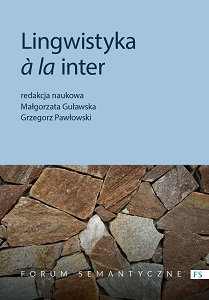Język obcy – kultura (nie)obca: modele nauczania kultury w glottodydaktyce
Foreign Language – (Non) Foreign Culture: Cultural Paradigms in Foreign Language Education
Author(s): Marta Kaliska
Subject(s): Philosophy, Theoretical Linguistics, Applied Linguistics, Translation Studies
Published by: Wydawnictwa Uniwersytetu Warszawskiego
Keywords: language education; foreign language teaching; culture; culture pedagogy; diachronic analysis
Summary/Abstract: The main purpose of the article is to diachronically illustrate the most important paradigms of teaching culture in glottodidactics (language education), understood in an interdisciplinary perspective as a field that combines sciences such as pedagogy, psychology, sociology and culturology. One of the research areas of language education is teaching foreign languages, which plays a particularly important role in promoting the knowledge of other cultures, (inter)cultural skills, as well as appropriate attitudes towards the representatives of these cultures. The perception of cultural issues has changed with the development of language teaching methodology. In the era of the dominance of the formalistic approach, from the mid-nineteenth century, the monocultural-national model prevailed, since the second half of the twentieth century the paradigm has changed: the culture-oriented model by ‘small k’ has developed, then, the intercultural model, and finally the transnational one. The article presents their most important characteristics and discusses socio-political conditions that have brought about changes in the cultural worldview.
Book: Lingwistyka à la inter. Status i perspektywy badań interdyscyplinarnych
- Page Range: 143-168
- Page Count: 26
- Publication Year: 2021
- Language: Polish
- Content File-PDF

